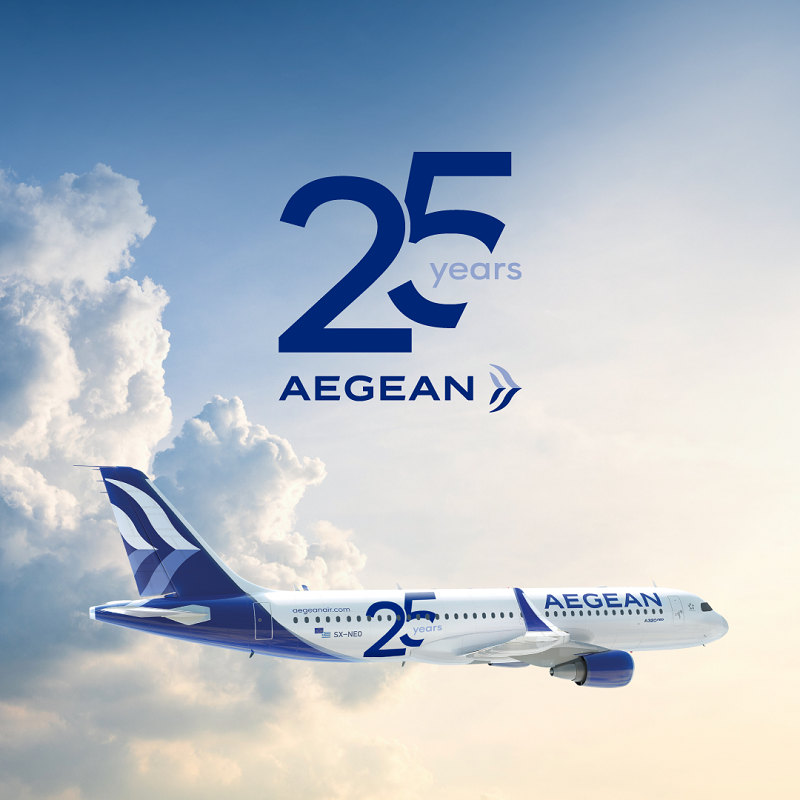Greek airline Aegean announced on Wednesday its financial and operational results for the first quarter of 2025, reporting strong revenue growth and improved operating performance during the seasonally weakest period of the year.
Revenue reached €306.0 million, up 14 per cent compared to the same period in 2024, as total passenger traffic rose by 8 per cent to 3.1 million.
International traffic increased by 12 per cent, while total available seat kilometres (ASKs) climbed by 11 per cent to 4.1 billion. The load factor stood at 80.6 per cent.
According to the company, EBITDA reached €43.8 million, compared to €33.2 million in Q1 2024, marking the highest first-quarter EBITDA performance in Aegean’s history.
EBIT losses narrowed to €2.6 million, down from €7.2 million a year earlier, while after-tax losses were significantly reduced to €6.6 million, compared with €21 million in the same quarter last year.
Beyond the improvement in operating profitability, the quarter also benefited from a positive valuation impact on aircraft lease liabilities due to the delta in the euro-dollar exchange rate.
The airline maintained strong liquidity, with cash, cash equivalents and other financial investments totalling €796.1 million as of March 31, 2025. This figure includes the acquisition of a new A320neo aircraft, which was financed entirely with own funds during the quarter.
Commenting on the results, CEO Dimitris Gerogiannis said that “The first quarter 2025 results validate Aegean’s strategy and growth momentum.”
He said the airline strengthened its passenger traffic, “especially in international routes,” and added that the network was further enhanced by “adding more frequencies in winter for the second consecutive year to selected destinations.”
He also noted that “operating results improved with Aegean recording the highest EBITDA performance in its history,” while “seasonal losses substantially narrowed during the seasonally weakest quarter of the year.”
Moreover, Gerogiannis pointed to the broader shift in market dynamics, saying “The continued recovery in local demand, along with the gradual extension of the tourist season, particularly in Athens and Thessaloniki, enable us to operate with improved intensity over a gradually expanding period.”
He acknowledged the challenges of off-peak expansion but stressed its importance: “Investing in the winter is costly and requires time to mature but remains essential for Aegean and the broader Greek economy.”
Looking ahead, the company reaffirmed its commitment to fleet investment. Six aircraft deliveries are scheduled in 2025, including three Airbus A321neo, two Airbus A320neo and one brand-new ATR 72-600.
At the same time, Aegean continues to expand its network with new routes, aiming to “further enhance connectivity and strengthen our presence in strategic destinations.”
For the full year, Aegean plans to offer 21.2 million seats, 1.5 million more than in 2024.






Click here to change your cookie preferences